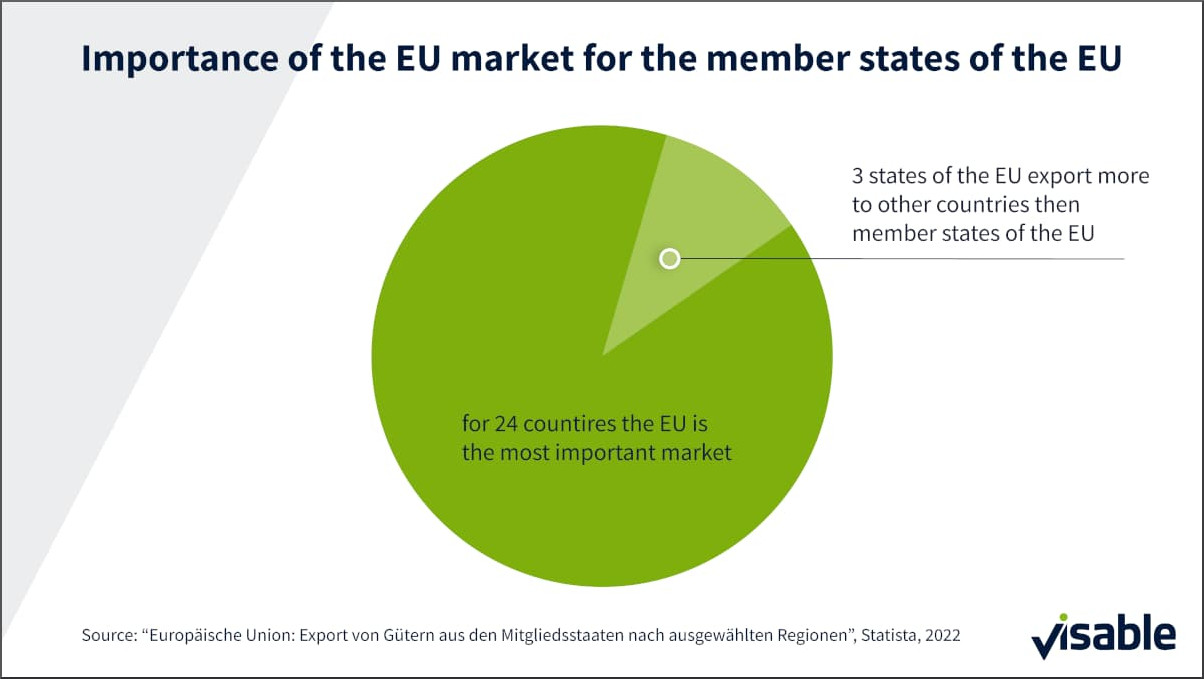Before going digital, many B2B companies market their products mainly on the domestic market – with the help of ads in special interest magazines and at trade shows. Especially small and medium-sized companies simply do not have the budget to implement an international marketing strategy. But today, times have changed. Digitalisation is opening up new paths for the B2B sector. But wait! If you want to take your sales and marketing to an international level, there are some things you need to consider first.

Reasons for going global with your sales and marketing
There are many reasons for companies to internationalise their sales and marketing – for instance because of technological innovations. But mainly it is the competition, which is globally active, that puts companies under pressure to go further.
Many start-ups and SMEs would like to explore new horizons. And they have many options for doing so, ranging from exporting and issuing licences to starting joint ventures and establishing subsidiaries or branch offices in other countries.
Chances and challenges associated with going global
The internationalisation of sales and marketing can bring along many advantages with it – for instance the chance to stand out from the competition and achieve strategic benefits. What’s more, new sales markets can be tapped into, including winning new customers and achieving a greater independence from the domestic market.
These chances, however, also face a number of various challenges. Taking the step to enter a new market is associated with uncertainty, cost and enormous effort in gaining further information. Only in very rare cases can a sales strategy which has been developed for the domestic market work for foreign markets without the need for any adaptation or adjustments.

Internationalisation of a digital business model
The first and most important step when planning to go global is a country analysis. Companies which would like to be successful abroad should take a close look at the country-specific characteristics. Which cultural aspects do you need to consider? How ripe is the market or how much potential does it have? What is the competition like there? And how many potential customers could you even expect? The infrastructure in the country also needs to be carefully analysed. How quickly can a product be delivered, for instance?
Legal aspects and content also play an important role. The legal framework in the country where the company would like to expand into needs to be thoroughly checked. Are there any special labelling requirements, for instance? What about privacy policy requirements?
Knowing and meeting in-house requirements
If a company would like to internationalise their sales and marketing, the in-house requirements must be clearly identified and met just as much as the external requirements.
For instance, companies should name a responsible person for the business per region or country. This responsible person is a central contact person with access to all the necessary resources and information. This enables them to optimally manage the processes within the country.
What’s more, it’s important that the entire team understands and internalises the changes taking place within the company. In this respect, all the relevant employees must be familiarised with the new, international requirements and be sensitised toward the new markets.

What to consider in the communication
When it comes to communication, too, the internationalisation of sales and marketing must satisfy certain requirements. Ideally, a native speaker is responsible for addressing customers. For the website, it’s important that the company secure the respective domains early on. Moreover, the online marketing, for example in the form of search engine optimisation (SEO), must be country-specific. Most likely, other keywords will be relevant than those in the domestic market.
Internationalising sales and marketing: global or local?
For the sales and marketing strategy, a company can take one of two routes: global or local. The global (non-differentiated) strategy is simultaneously rolled out across several (or all) countries where the company is represented. The advantages of this are cost savings and a good overview of all the markets. The big disadvantage is a rigid price strategy. All customers in all countries have to pay the same price for a product, even if pricing varies from country to country.
The alternative is a local (differentiated) sales and marketing strategy which is tailored to the individual countries or regions from the start. The costs are indeed higher for this strategy, but the specialisation offers a competitive advantage which should not be taken lightly when it comes to winning over new customers.
Due to costs, many companies initially choose to mix the two strategy forms when taking their first steps abroad – adapting the global strategy to the local strategy over time.
Conclusion
The internationalisation of sales and marketing for start-ups and SMEs should be thoroughly planned. Especially when it comes to (digital) marketing, a few factors need to be considered. After completing a comprehensive country and market analysis, the right way to address potential customers should be defined – either on the own website or in social media. What’s more, country-specific differences have to possibly be considered for online marketing measures. Last but not least, a decision needs to be taken regarding a global or local sales and marketing structure.
